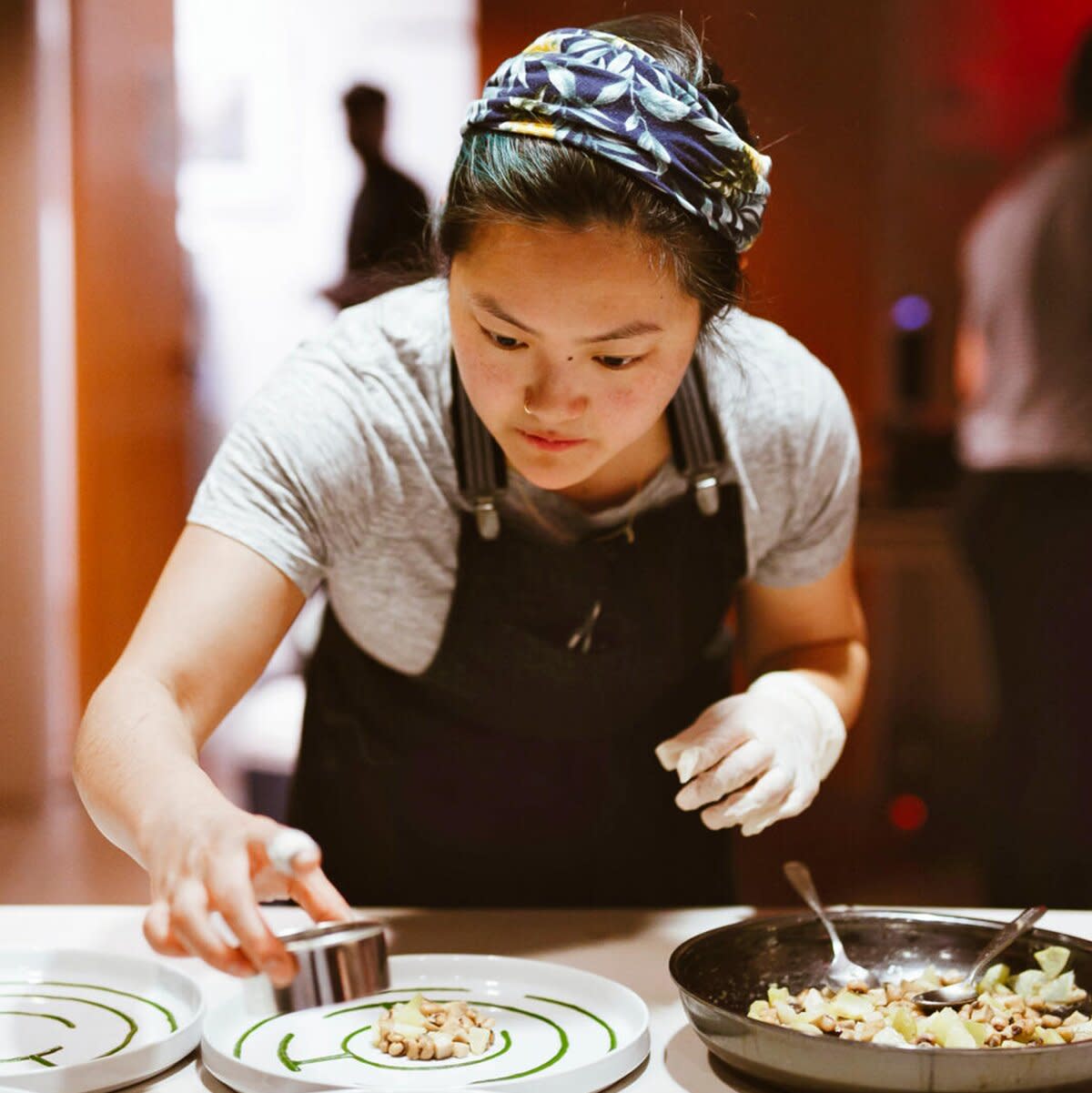F&W Game Changers: Jenny Dorsey

Briana Balducci
Roasted freshwater eel, garlic chive, oyster brine, sweet potato, and creamed duck tongues in a tarragon sauce — all enveloped in a white snow fungus and topped with mealworms — make up chef Jenny Dorsey's "Hello My Name Is: Disgusting," plated dish. This creation, as seen in Dorsey's "Asian in America" experimental dinner series, is the embodiment of her shame as a Chinese teen whose favorite foods were ostracized and othered.
READ MORE: Food & Wine Game Changers: 16 People and Companies Changing the Way We Eat and Drink
"People around us tell us what to buy into," Dorsey said. "It can sometimes feel like we are part of a culture that's being created without our active input, but I believe very strongly that that is not true. We are all constantly shaping culture. If we actively choose to participate in culture, we can shape its design."
Dorsey is a multihyphenate: chef, consultant, artist, activist, writer, and founder of Studio ATAO, a community-driven think tank focused on the intersections between community, politics, and social justice. Studio ATAO (which stands for All Together At Once) creates resources that are intended to drive social change, many of which are focused on the food and media industries, such as the Toolkit for Implementing Systematic Changes Towards Equitable Representation in Food Media Companies, launched in 2021, and an initiative called The Neighborhood's Table, which aims to help hospitality businesses connect with their communities and combat gentrification.
As Studio ATAO's executive director, Dorsey manages all aspects of the small start-up, from coordinating events to handling donations (she's currently fundraising to create a food systems curriculum for workers in the food, beverage, and hospitality industry). She's also a spokesperson for their work. Dorsey could reap the benefits of being a celebrated chef who also happens to be a woman of color in the still-very-white-and-male world of hospitality. Instead, she speaks out on the systemic injustices that plague underrepresented groups, who often deal with low wages and unfair workplace conditions. Both within Studio ATAO and in her other work, Dorsey criticizes the industry that puts a higher value on the art rather than the people who create it — the same industry that put her on the map and gave her the platform to share this message. Dorsey's self-reflection and dedication to change is exactly what makes her stand out. Her mission is to change the world by changing her world.
Food's soft power is its ability to shape our identities.
During a 2020 TEDx talk, Dorsey talked about being made fun of at school for bringing in garlic-chive dumplings and pork belly for lunch. "Food's soft power is its ability to shape our identities," Dorsey said on stage, "ultimately influencing the way we see ourselves in relation to other people." For Dorsey, while there is a lot of power in reclaiming who you are, there is still a lot of pain in realizing self-acceptance comes at the cost of knowing you're an outsider. Rather than shy away from these difficult truths, Dorsey is using them to guide her work — and, in the process, inspiring others to do the same.
Editor's note: Ximena N. Beltran Quan Kiu helped edit Studio ATAO's toolkit on equitable representation in food media.
Meet the 2022 Food & Wine Game Changers
Alexis Nikole Nelson | Bento Box | Chintan Pandya and Roni Mazumdar | Dwyane Wade | Ghetto Gastro | Jenny Dorsey | Momofuku Packaged Goods | No & Low | OXO | Prime Roots | Patagonia Provisions | Sanzo | Stephen Satterfield | World Central Kitchen | Yannick Benjamin

